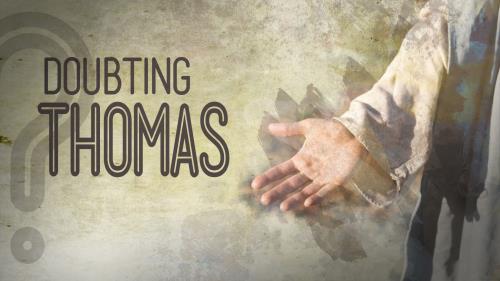-
The Beginning Of The Gospel Series
Contributed by James Jackson on Feb 23, 2020 (message contributor)
Summary: Of the four gospel writers, Mark is the journalist. In chapter 1, he answers the Who, What, When, Where, and Why of the gospel.
Good morning! Please open your Bibles to Mark chapter 1. We are starting a new series that’s going to take us through the next several weeks, and we are calling it “GOOD NEWS.”
For the longest time, there were basically just two types of news. There was BAD NEWS, and there was GOOD NEWS. Someone might say, “Well, what about OLD NEWS? Isn’t that a type of news? Well, no. What’s the opposite of new? OLD. So OLD NEWS isn’t really news. It’s olds.
Someone else might say, “What about “NO NEWS?” Wouldn’t that be a type of news? Not really. You can fill in the rest of the saying with me, right?: NO NEWS is… [GOOD NEWS]. So, we are back to just two types of news.
Now, in the last couple of years, we’ve had to acknowledge that there is a third category of news. Along with good news and bad news, there is… FAKE NEWS. We didn’t used to have to worry much about this one. If Walter Cronkite said, “That’s the way it is…” then that’s the way it was.
Not so much, anymore. We live in what many describe as a “post-truth” society. The Cambridge English Dictionary defines “post-truth” as describing a situation “in which people are more likely to accept an argument based on their emotions and beliefs, rather than one based on facts.” And so in a post-truth culture, any news someone hears is filtered through whether or not it conforms to your presuppositions, or advances your emotional argument. So you might as well get ready and buckle up, because the deeper we get into this election year, the more you will hear policiticians on both sides making appeals that are based emotions and beliefs rather than facts. And both sides will claim that they are speaking the truth and that the other side is fake news. Does it make anyone else want to just turn off the news completely? Actually, you have a great opportunity to do that during this season. Every year people often pick something to give up during the season of Lent, the forty days leading up to Easter. And this year, I’m giving up the news. I’m deleting all my news apps, I’m turning off all my notifications, and I’m cancelling the scheduled recordings on our DVR. And I’m telling you because I want you to hold me accountable. You get to ask me if I watched the news this week. You get to ask Trish if I watched the news this week.
Friends, I would suggest to you this morning that a post-truth world needs the absolute truth of the gospel more than ever. The gospel may be the only thing left in our world that can never be accused of being fake news. And I know many of you already know this, but the word gospel itself literally means “Good News.” In the Greek language in which the New Testament was written, the word translated gospel is euangellion. “Eu” meaning “good” and “angellion” meaning message. And someone who proclaimed the euangellion was called a euangellios, or evangelist.
Mark begins his account of the life of Jesus with these words. He says in Mark 1:1 that this is “The beginning of the gospel of Jesus Christ, the Son of God.” So everything Mark writes is going to be for the purpose of showing that Jesus is the God’s Son and the savior of the world.
Since we are going to be in the gospel of Mark for awhile, we should probably start off by learning a little about who this Mark is. Mark is actually John Mark, a Jewish Roman citizen who lived in Jerusalem. According to Acts 12:12, his home was a meeting place for the early church. His cousin was Barnabas, and he accompanied Paul on his first missionary journey. Mark wasn’t a disciple himself, but most people believe that Peter was his primary source for his gospel.
Mark’s gospel was the first one written, somewhere between 40 and 60 AD. It’s also the shortest gospel, about half the length of Matthew. And more than any other gospel, it focuses on action. If there’s one word that characterizes Mark’s gospel, it’s the word immediately. Mark uses it over thirty times in the gospel. Unlike Matthew and Luke, which both start with a genealogy and a birth narrative, Mark jumps straight into the action with Jesus as a grown man. If you think of Luke as a historian, think of Mark as a journalist—hitting the facts. He includes lots of details that could only have come from an eyewitness.
Let’s go ahead and stand in honor of the reading of God’s Word, and as you are reading, I want you to notice some of these details we talked about:

 Sermon Central
Sermon Central



